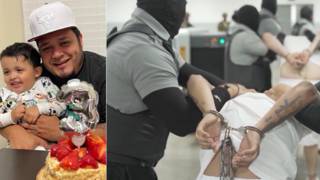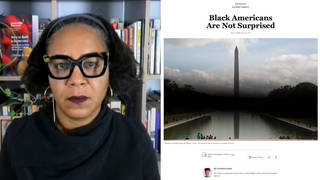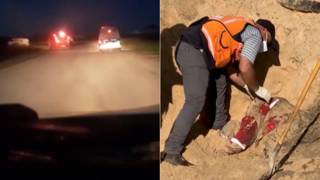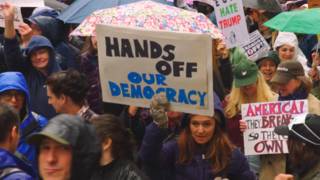HeadlinesDecember 11, 2003
Supreme Court Upholds Campaign Finance Law
In a 5 to 4 decision, the Supreme Court upheld the McCain-Feingold campaign finance law that bans unregulated donations to political parties from wealthy backers, corporations or unions. The justices also backed provisions of the law that control campaign-season political advertising. Voting to uphold the law were Justices John Paul Stevens, Sandra Day O’Connor, David Souter, Ruth Bader Ginsburg and Stephen Breyer. They wrote in the majority opinion “The prevention of corruption or its appearance constitutes a sufficiently important interest to justify political contribution limits.” Ruling against the law were Chief Justice William Rehnquist and Justices Antonin Scalia, Anthony Kennedy and Clarence Thomas.
Both the National Rifle Association and the AFL-CIO expressed outrage over the decision. Wayne LaPierre, head of the NRA, said the ruling was “the most significant change in the First Amendment since the Alien and Sedition Acts of 1798, which tried to make it a crime to criticize a member of Congress.” The Center for Responsive Politics praised the decision. Its executive director Larry Noble said the court “confirmed what many political actors and observers have known for years: that large political contributions buy access to elected officials and raise the potential for corruption within the political system.” Meanwhile the Public Interest Research Group criticized the court for not going far enough to reform the campaign finance laws. The court upheld a change in the law that increased the amount individuals can give to a candidate from $1,000 to $2,000.
U.S. Asks Anti-War Nations To Forgive Iraq Debt
A day after the Pentagon announced that companies from France, Germany and Russia would be barred from winning contracts to help rebuild Iraq, President Bush called the leaders of each country to ask them to forgive billions in debt owed by Iraq. A memo from Deputy Defense Secretary Paul Wolfowitz, appeared on the Pentagon’s website just hours before Bush was scheduled to call the leaders of France, Germany and Russia and ask them to receive presidential envoy James Baker. Baker is traveling to Europe this weekend to ask countries to wipe out Iraq’s debt. The White House said President Bush was surprised about the timing and tone of Wolfowitz’s directive which claimed the ban on countries that opposed the invasion was needed in part for security reasons.
CIA Plans to Train Iraqi Intelligence Unit
The Washington Post reports the White House has authorized the CIA to train, finance and equip a new Iraqi intelligence service. The new agency will spy on the Iraqi resistance movement that opposed the U.S. occupation.
Pentagon: 1/3 Of New Iraqi Soldiers Quit Army
Meanwhile defense officials said Wednesday that one third of the Iraqis who were trained as soldiers by U.S.-occupying forces have since quit the new Iraqi army. The U.S. was hoping to quickly form a 700-man Iraqi battalion but 250 of the soldiers have already quit.
10,000 Private Military Contractors Now In Iraq
The Guardian of London is reporting that there are 10,000 private military contractors on the ground in Iraq. Private military companies are now providing more personnel to Iraq than any country besides the U.S. The Army is estimating that of the $87 billion recently approved by Congress to rebuild Iraq and Afghanistan, $30 billion will go to private military companies.
Report: U.S. Dropped 11,000 Cluster Bombs on Iraq
A USA Today study has found that the U.S. dropped or fired nearly 11,000 cluster bombs or cluster weapons on Iraq during the invasion and Britain dropped 2,000 more. It is unknown how many Iraqis died from cluster bombs. One estimate puts the total at 370. And the attacks left behind thousands of unexploded bomblets. At least eight U.S. soldiers and an unknown number of Iraqis have been killed by unexploded bomblets.
Nobel Peace Prize Winner Condemns War on Terror
At here acceptance ceremony for the Nobel Peace Prize, Iranian human rights activist, Shirin Ebadi warned that the so-called war on terrorism must not erode civil liberties and human rights. Speaking in Persian, she said: “In the past two years, some states have violated the universal principles and laws of human rights by using the events of Sept. 11 and the war on international terrorism as a pretext.” She continued “Regulations restricting human rights and basic freedoms … have been justified and given legitimacy under the cloak of the war on terrorism.” Ebadi, an attorney, is the first Muslim woman to win the Nobel Peace Prize.
Tel Aviv Bombing Aimed At Mafia Head Kills 3
In Tel Aviv, at least three people have died after an explosion insider a foreign currency exchange booth. Police suspect the bombing was meant to kill Ze’ev Rosenstein, a man believe to be one of Israeli’s most powerful mobsters.
Israel Kills Four Palestinians In Gaza Raid
In Gaza, Israeli forces launched its largest incursion into the Rafah refugee camp in two months. The BBC reports four Palestinians have been killed and 17 more wounded.
ABC Drops Coverage of Kucinch, Sharpton, Braun
In campaign news, the Denis Kucinich campaign is reporting that ABC News has pulled its reporters from covering his campaign as well as those of Carol Mosely Braun and the Rev. Al Sharpton. The decision comes more than a month and a half before the first primary vote is cast. Kucinich said this is an example of “the media trying to pick candidates, rather than letting the voters do so. In a democracy, it should be voters and not pundits or TV networks who narrow the field of candidates.”
Most popular
- 1
- 2
- 3
- 4
Non-commercial news needs your support
Please do your part today.











Media Options